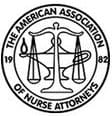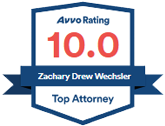Assessing The Content Of Character
Passing the bar exam isn’t enough to launch a legal career. The murky art of judging the morality of would-be lawyers takes center stage.
Assessing The Content Of An Attorney’s Character By Don J. DeBenedictis, Daily Journal Staff Writer (c)
For most people, the highest single hurdle on the way to becoming a lawyer — not counting law school or finding a job — is the bar exam, that grueling, three-day test on which career dreams depend.
For some, however, there’s another challenge: the State Bar’s assessment of their moral character. “For the people who are my clients, this is harder than the bar exam,” said Zachary D. Wechsler, a Los Angeles lawyer who represents law graduates with moral character troubles.
His clients — like those of other attorney discipline defense lawyers who also handle admissions matters — tend to be people with criminal convictions, multiple bankruptcies, addiction or serious school discipline issues.
But not always. Right now, the state Supreme Court is weighing whether former journalist Stephen Glass is moral enough to become a California lawyer even though he committed “extensive misconduct” by largely fabricating 42 articles he wrote for The New Republic in the late 1990s. Glass on Admission, S196374 (Cal., filed Sept. 12, 2011).
In every state, every would-be lawyer must prove to the admitting authority that he or she has the good moral character required to be a lawyer, according to Gayle E. Murphy, the State Bar’s director of admissions. That means demonstrating qualities such as “honesty, fairness, candor, trustworthiness,” she said.
“It’s a public protection issue. You basically want to show a good faith effort that this person has the good moral character an attorney should have.”
“A 19-year-old rocket scientist virgin is going to get in without a problem,” Wechsler quipped.
Yet even for the virgin, the morals application can be daunting.
The 39-page document includes a dozen pages of instructions and a half-dozen supplementary forms to be completed by people with particular issues, such as convictions, bankruptcies, mental illness or lawsuits. Ten more forms wait on the bar’s website for completion by applicants with less common troubles in their pasts, such as conservatorships and military discipline.
Would-be lawyers must tell the State Bar every place they’ve lived in the past eight years, every job they’ve had since turning 18 and pretty much every time they’ve been in trouble. They also must list five references, including one lawyer. They may have to consent to releasing their medical records.
When Murphy and other top bar officials make presentations at law schools about the moral character determination process, one common student concern is the complexity and detail of the application: What if an old address can’t be recalled or an old employer is gone?
By itself, that shouldn’t be a problem, Murphy said. “All they’re asked to do is the best job they can” in filling out the application.
Each completed application is first reviewed by staff in the bar’s office of admissions. If there are no concerns whatsoever — no “yes” answers to the many “have you ever” questions — the staff can approve an applicant’s character.
Only about 35 percent of applications get through at that level, Murphy said.
After all, “I think everybody’s got stuff that happened in their 20s that they don’t want to see the light of day,” said discipline defense attorney Diane Karpman.
If there is any such stuff, the application moves on to an investigator known as a moral character analyst for a closer look at records and other information. Analysts can approve the character of people with less serious problems, such as a simple divorce, Murphy said.
For more serious issues, the next step up is a section chief and then the bar’s director of moral character, who may request further information or investigation and can approve or deny some applications.
The most troubling applications go on to the Committee of Bar Examiners’ subcommittee on moral character, which in many cases asks the applicant to meet with a few committee members for an “informal conference.” Of the roughly 8,000 moral character applications received per year, only about 250 reach the subcommittee, Murphy said.
The good news for law school graduates with a hiccup or two in their pasts is that of all those applications each year, bar examiners only deny about 30 or 40. In 2012, only 26 people were rejected over their morality.
So one question is, why bother? Is it worth spending about $4 million a year — 8,000 applications times the $500 application fee — to keep 26 people from becoming lawyers?
There has been almost no empirical research into what the moral character review process accomplishes. One reason, of course, is that there’s no way to tell if someone denied a bar license would have gotten into trouble if he had been admitted.
In March this year, Leslie C. Levin and colleagues at the University of Connecticut School of Law published the first systematic study. They scoured the admissions history of 182 lawyers who Connecticut later disciplined looking for any early indicators of those future problems.
They didn’t find much. One of the strongest predictors of future discipline was being male, Levin said. Having bankruptcies in one’s past had zero correlation with discipline, she said.
Maybe cutting back on some questions, such as about bankruptcy, might make sense for her state, Levin said. But she’s less sure about getting rid of the character and fitness review entirely.
“It also has a signaling function … to tell the public who lawyers are,” she said.
Erica Moeser, the chief executive of the National Conference of Bar Examiners, likens the review to screening kindergarten bus drivers. “You cast a very wide net for very few people,” she said. But you wouldn’t want to let those few slip through.
Nevertheless, if less than half a percent of would-be lawyers are denied admission because of their characters, why does Wechsler say his clients find the process so hard?
For people with troubled pasts, just filling out the lengthy moral character application and its add-on forms requires a deep dive into old stressful situations they want to leave behind, according to Carol M. Langford, an attorney in Walnut Creek who concentrates her practice on admissions issues.
While lawyers have property rights to their licenses, bar applicants have the burden to prove they’re worthy. “You have to show by clear and convincing evidence that you have the appropriate good moral character,” Karpman said.
Step one, according to Murphy and all the lawyers asked, is full disclosure. Tell the admissions office and the bar committee of every peccadillo that might raise concerns, and provide the records — all of them.
“Usually it’s better to provide all the facts,” said Jerome Fishkin, a discipline and admissions lawyer in Walnut Creek. “If you treat your past problems honestly, you’ll probably get in.”
“Sacrifice brevity for completeness,” added Wechsler.
Problems that seemingly shouldn’t count still can. A Penal Code section says that applicants for state licenses are required to disclose certain misdemeanor convictions that have been expunged.
Even some expunged convictions that needn’t be disclosed might still sting, Murphy and Fishkin said, if they show up on an applicant’s college or law school record. Those will need to be explained to the committee anyway.
“Not all expungements are really expungements for moral character purposes,” Fishkin said.
Trying to hide an old conviction, expunged or not, then becomes the more serious issue for the bar committee, according to Murphy.
That’s because the true goal of the character review is to figure out who the applicant is now, not who he or she used to be. The subcommittee wants to see candor, reform and insight regarding one’s behavior, Wechsler said.
Thus, no one is kept out for having debt or a bankruptcy. But the bar examiners will want to feel confident the applicant now is handling money honestly and responsibly and perhaps paying off old debts, Murphy and others said.
For people who’ve had multiple drunken-driving convictions or other substance abuse issues, the moral character panel wants evidence of real rehabilitation. “The committee wants to know that the person has enough insight not to say, ‘Oh, I’ve cut down,” said Wechsler, who served on the bar moral character panel himself from 2001 through 2004.
These days, the committee often puts the application of someone with alcohol or drug problems into “abeyance” for six to 18 months while the applicant continues treatment through the bar’s Lawyer Assistance Program. Wechsler said his rule of thumb has been one year of sustained, treatable sobriety prior to admission.
Applicants whose troubles call for the in-person conference with the bar examiners subcommittee face an especially grueling examination.
“You’re trying to look into someone’s soul,” former panel member Wechsler said. “Are they honest? What sort of person are they?”
Attorneys are permitted to attend the conferences, but they aren’t allowed to speak. “You sit there with your client, and all you can do is kick them under the table,” Karpman said.
Some defense attorneys say some panelists take advantage of that to become abusive and even mean. Both Fishkin and Arthur Margolis, one of the attorneys for Stephen Glass, said they’ve gotten so upset with a committee member on occasion that they’ve spoken up despite the rule.
“I had to stand up and tell them … they’re mistreating my client,” Fishkin said.
Murphy said the subcommittee members all act respectfully and professionally at the meetings she attends.
Wechsler said rough treatment is part of the gestalt of the conferences. “There will be somebody who … will be supportive and somebody to be the asshole,” he said. “That used to be me.”
Even though he thinks panelists can be “obnoxious,” Margolis said the subcommittee seems to make acceptable decisions. “I can’t say they do an unreliable or invalid job,” he said.
In fact, people with very serious criminal convictions on their records, even including homicide and fraud, have become California lawyers, according to Murphy and others.
Many in that category are denied admission, however. “It just depends on their rehabilitation,” she said.
For those people, the bar examiners demand more than bare rehabilitation. Those applicants must show they are counterbalancing their bad acts with good acts. “When you do great harm, you must do great good,” Karpman said.
That heightened moral duty could be the key issue for Glass. During oral arguments earlier this month, one Supreme Court justice asked the disgraced journalist’s appellate attorney, “Has he gone to a shelter and served food to the homeless?”
And what happens when someone is denied admission for moral reasons? The applicant can appeal to the State Bar Court and, like Glass, to the Supreme Court.
Or he or she can wait two years and apply again. Wechsler insists his denied clients take advantage of those two years to further their rehabilitation.
“I make them write a letter thanking the bar” for being refused admission, he said. The letter says, “Here’s what I’m going to do in the next two years.”









